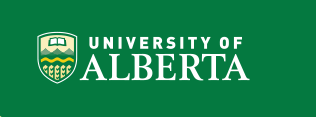43
Programs of Study
43.4
BA (Criminology)
43.4 BA (Criminology)
![]() Admission Requirements: See §16.2.3.
Admission Requirements: See §16.2.3.
![]() Program Focus: This quota program, based in the Department of Sociology, coordinates several disciplines to provide a more thorough analysis of the causes of criminal behavior and the variety of social responses to such conduct. It is a program of
Program Focus: This quota program, based in the Department of Sociology, coordinates several disciplines to provide a more thorough analysis of the causes of criminal behavior and the variety of social responses to such conduct. It is a program of ![]() 120, with Sociology as the principal subject of concentration. The second subject of concentration is composed of a combination of approved courses from the Departments of Anthropology, Economics, Educational Psychology, History, Native Studies, Philosophy, Political Science, and Psychology. The program is for students with career interests in the criminal justice system and includes two field placements for supervised work experience.
120, with Sociology as the principal subject of concentration. The second subject of concentration is composed of a combination of approved courses from the Departments of Anthropology, Economics, Educational Psychology, History, Native Studies, Philosophy, Political Science, and Psychology. The program is for students with career interests in the criminal justice system and includes two field placements for supervised work experience.
Registration
Criminology students are required to consult the Program Director to review proposed coursework before registration for each academic year and in advance of any changes to approved registration. | |
Normally, students are expected to enrol full time ( | |
Students must obtain permission of the Director in advance if they wish to interrupt their program but retain their status in the BA (Criminology) program. |
Curriculum
Students seeking admission to Criminology should include | |
Basic Requirements: The basic requirements for the BA Criminology program are the same as those for the BA (see Arts Chart 1): | |
Subjects of concentration: The principal subject is Sociology in which a minimum of | |
Other coursework required to reach | |
The final two years of the program must include the successful completion of SOC 399 and 499. These courses are required as part of the principal subject of concentration and will involve supervised work experience. Students must obtain a minimum grade of B- in each component of SOC 399 and 499 or repeat the entire course. |
![]() Students should be aware that under the Protection for Persons in Care Act, all new employees, volunteers and other people engaged for services by designated agencies (hospitals, nursing homes, group homes, social service agencies, etc.) must complete a Police Information Check (also known as a Criminal Record Check, Security Clearance Check, or Police Clearance), which must include a Vulnerable Sector Check. In addition, certain other agencies, organizations, and educational facilities may require students to present a Police Information Check prior to entering a practicum, work placement term, internship, or field experience placement.
Students should be aware that under the Protection for Persons in Care Act, all new employees, volunteers and other people engaged for services by designated agencies (hospitals, nursing homes, group homes, social service agencies, etc.) must complete a Police Information Check (also known as a Criminal Record Check, Security Clearance Check, or Police Clearance), which must include a Vulnerable Sector Check. In addition, certain other agencies, organizations, and educational facilities may require students to present a Police Information Check prior to entering a practicum, work placement term, internship, or field experience placement.
![]() Students who have concerns related to their ability to provide a clear Police Information Check should consult with the Associate Dean, Student Programs. Students will be informed of the need for a Police Information Check prior to specific internship/practicum/work experience placement. See §23.8.3 for more information on the general requirements concerning Police Information Checks and the fees associated with them.
Students who have concerns related to their ability to provide a clear Police Information Check should consult with the Associate Dean, Student Programs. Students will be informed of the need for a Police Information Check prior to specific internship/practicum/work experience placement. See §23.8.3 for more information on the general requirements concerning Police Information Checks and the fees associated with them.
Promotion
To be promoted in each academic year, students must have | |
maintained a full-course load of | |
attained a minimum grade point average of 2.7; | |
attained a minimum grade of B- in SOC 399 and 499 as required during the final two years of the program; and | |
been recommended by the Department of Sociology. | |
Non-Promotion
Failure to be promoted for academic reasons is cause for removal from the program. | |
Affected students may transfer to another program in the Faculty if they meet admission requirements of such a program. All other requirements for the new program must be completed after transferring. |
Academic Performance
Academic Performance for Graduation: To qualify for a BA (Criminology), students must have completed all program requirements, achieved a minimum GPA of 2.7 in each academic year of the program, and be recommended by the Department of Sociology. | |
Degrees With Distinction: See §43.3. |


